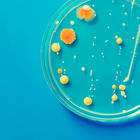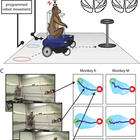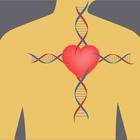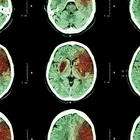Bioscience Bulletin: Potential Huntington’s Treatment, Cuban Lung Cancer Vaccine, and Precision Medicine
March 4, 2024 4:48 pm | by Bevin Fletcher, Associate Editor | CommentsCheck out our top stories this week!
Scientists Find Brain Cells with 100+ Unique Mutations
March 4, 2024 10:18 am | by Scripps Research Institute | CommentsIn a new study, scientists are the first to sequence the complete genomes of individual neurons and to produce live mice carrying neuronal genomes in all of their cells.
Can't Sleep? Street Lights May be Keeping You Awake
March 4, 2024 10:13 am | by American Academy of Neurology | CommentsIf your neighborhood is well-lit at night, you may not be sleeping well, according to a new study.
Neuroscientists Discover a Gene that Controls Worms’ Behavioral State
March 4, 2024 10:04 am | by Anne Trafton, MIT News Office | CommentsIn a study of worms, neuroscientists have discovered a gene that plays a critical role in controlling the switch between alternative behavioral states, which for humans include hunger and fullness, or sleep and wakefulness.
CDC: Superbugs Cause 1 in 7 Infections Caught in Hospitals
March 4, 2024 9:45 am | by Mike Stobbe, AP Medical Writer | CommentsSupergerms cause 1 out of 7 infections caught in hospitals, health officials said Thursday. The bugs include the staph infection MRSA (MUR'-suh) and five other bacteria resistant to many kinds of antibiotics, the Centers for Disease Control and Prevention reported.
‘Broken-heart Syndrome’ Also Caused by Too Much Happiness
March 4, 2024 9:32 am | by Seth Augenstein, Digital Reporter | CommentsTakotsubo syndrome, first described in the medical literature in 1990, has come to be known as “broken-heart syndrome.” Grief, anger or fear in excess can cause serious overstimulation of the nervous system, which leads to heart arrhythmias or outright sudden cardiac death. But the same emotional pathways can be jolted by extreme happiness – leading to the same danger of a heart failure, according to a new study.
Monkeys Control Wheelchair with Thoughts
March 4, 2024 9:27 am | by Greg Watry, Digital Reporter | CommentsNeuroscientists from Duke University's Center for Neuroengineering have successfully endowed monkeys with the ability to move robotic wheelchairs using thought alone.
First Gene for Gray Hair Found
March 3, 2024 11:27 am | by University College London | CommentsThe first gene identified for graying hair has been discovered by an international study, confirming graying has a genetic component and is not just environmental.
High Similarity Between Gorilla and Human Y Chromosome
March 3, 2024 11:18 am | by Penn State University | CommentsA new, less expensive, and faster method now has been developed and used to determine the DNA sequence of the male-specific Y chromosome in the gorilla. The technique will allow better access to genetic information of the Y chromosome of any species and thus can be used to study male infertility disorders and male-specific mutations.
How Diet Influences Colon Cancer
March 3, 2024 11:09 am | by Anne Trafton, MIT News Office | CommentsOver the past decade, studies have found that obesity and eating a high-fat, high-calorie diet are significant risk factors for many types of cancer. Now, a new study reveals how a high-fat diet makes the cells of the intestinal lining more likely to become cancerous.
Newly Identified Genetic Errors May Prevent Heart Attacks
March 3, 2024 11:01 am | by Washington University in St. Louis | CommentsA new study that included genetic data from more than 190,000 people has identified two genes that, when altered in specific ways, either promote or undermine cardiovascular health.
Google Donates $1M to Help Fight Zika Virus Spread
March 3, 2024 10:36 am | by The Associated Press | CommentsGoogle is donating $1 million to fight the spread of the Zika virus and offering engineers and data scientists help to determine where it will hit next.
Study Examines Link Between Daylight Savings and Increased Stroke Risk
March 3, 2024 10:24 am | by Bevin Fletcher, Associate Editor | CommentsDoes turning the clock back or forward an hour mess with people’s circadian rhythm and put them at an increased risk of ischemic stroke? A new study that will be presented at the American Academy of Neurology’s 68th Annual Meeting in Vancouver, in April, suggests it does, though only temporarily.
Advanced Screening Technology May Improve Individualized Cancer Treatments
March 2, 2024 10:36 am | by UCLA | CommentsDespite a growing interest in developing non-invasive methods to identify rare cancer cells or cancer cell DNA in blood, current techniques remain complicated and often prohibitively expensive. Now, researchers have pioneered a more effective approach to these "liquid biopsies" that has the potential to offer a streamlined and low-cost solution for people with the disease.
Researchers Enhance CRISPR Gene Editing Technology
March 2, 2024 10:31 am | by Texas Tech University | CommentsScientists have developed a process that improves the efficiency of CRISPR, an up-and-coming technology used to edit DNA.














_1_itok-H7jIiYb3.jpg)




